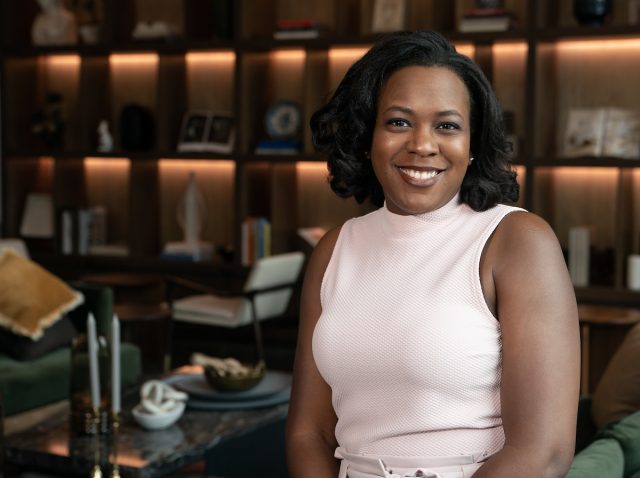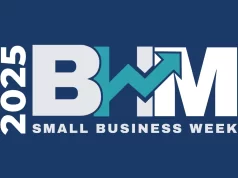
By Je’Don Holloway Talley
For The Birmingham Times
When LaToya Irby taught a virtual class on finances and the stock market earlier this year, there was one student who had a vested interest—her teenage daughter.
“I was really impressed that she listened, was engaged, and understood,” said Irby. “She actually asked a question during the class, too.”
Irby is a finance guru who regularly talks about finance, credit, business, and money management on social media. She also has written articles for MyFico.com and TheBalance.com, and been a guest on talk radio from Arizona to Florida. In addition, she is the marketing director for HealPay, a payment processing software company located in Ann Arbor, Michigan, as well as a contract content creator for several businesses.
Smart money management and credit are a regular part of the conversation between Irby and her daughter.
“I teach her everything I know,” said Irby, who has hosted a broad range of virtual classes, including “Introduction to the Stock Market,” “Investment Buying for Beginners Brunch and Learn,” and “Home Buying 101,” as well as a Credit Education Series.
“I taught [my daughter] about credit and how it works. I sat her down one day and drew it out on a whiteboard, explaining it all, [such as] how credit cards and interest work,” Irby said. “I try to do my best to make sure she knows everything I know. She has her own checking and savings accounts that she manages.”
First Job
Like her daughter, Irby was also a teenager when she got her first savings account. Although she made some money management mistakes in early adulthood, she had learned the principles of saving from her great-grandmother, Laura Stephens, who helped shape Irby’s money habits and beliefs.
“I got my first job when I was 13 years old,” Irby said. “I played the piano for our Sunday school at church, [Adamsville First Church of God, in Adamsville, Alabama], and got paid $50 dollars a week.”
“My great-grandmother had my mom open up a savings account for me and made me save half of my paycheck every month, plus pay tithes. … That solidified the importance of saving money. Even though I hated it, I think it definitely established good saving habits,” she added, noting that by the time she was 16 her savings account had accumulated roughly $6,000 dollars.
Even with that firm financial foundation, the Graysville, Alabama, native had to overcome a few missteps along the way, including once being denied an apartment when she got out of college because of bad credit. From there, Irby became well-versed on financial research and analysis and started developing her own investment strategy.
“No advisor,” she said. “I research companies, read their financial reports, and pay attention to the news [about that company, their competitors, and the industry]. … I think it’s possible for anyone to invest on their own, even if they prefer to be more hands-off. If I didn’t want to be as active in my portfolio, I would choose a few stocks or funds and invest in just those consistently month after month.”
The University of Alabama alum monitors her investments frequently.
“I enjoy reading business, finance, and economic news, and overall staying on top of what’s going on so I can make better investment decisions,” she said.
Irby, who currently lives in Homewood, Alabama, said there are several ways to invest and trade—and now it’s easier than ever to get started via platforms like Robinhood, Webull, E-Trade, TD Ameritrade, Vanguard, Stash, and Acorns.
“They all have different benefits, services, and account types available,” she said. “When you’re choosing a platform, you want to consider whether you need certain tax-advantaged retirement accounts and if you want access to an advisor, for instance.”
Paying Dividends
Plainly put, investing is simply making your money work for you by putting your money into things that either appreciate (increase in value) or generate passive income (require minimal labor to earn and maintain).
“That could mean investing in stocks or other assets that increase in price over time,” Irby said. “Or it could mean investing in a stock or business that pays you dividends, [the distribution of some of a company’s earnings to a class of its shareholders]. Basically, you earn the money, then put it into something that can generate more money. … Reinvesting your earnings helps you grow your money even faster.”
Asked how quickly a return on an investment can be seen, the Minor High School grad said it can happen in minutes, depending on how quickly that stock price moves. Statistics commonly reflect an average stock market return between eight and 10 percent per year, not adjusting for inflation.
Irby said there are three areas she has seen her clients struggle with when trying to get into investing: fear, a lack of confidence, and changing spending habits.
“Many people are afraid to lose money,” she said. “Almost everyone has heard of someone who lost some money in an investment, [so] they think they have to be an expert to get started, which goes back to being afraid to lose money. The stock market is intimidating for a lot of people, and they’re afraid they’re going to make a mistake. [Also, people have to learn to] change their spending habits to invest. If you’ve been used to enjoying 100 percent of your money, it’s tough to scale your spending back, even just by 5 or 10 percent. It’s even harder to make the change for something you’re fearful of.”
Irby credits social media platforms for bringing investing mainstream, “especially [via] Instagram and TikTok. … Young adults are talking about it more, showing the value, and showing how easy it is to get started.”
Building for the Future
Financial literacy is an important tool in developing a stable financial future, said Irby, who was 25 when she had her daughter. As a mother, she’s committed to making sure she creates multiple streams of income to sustain a comfortable lifestyle for her daughter and herself.
“I make sure I earn enough to not just cover bills but also enjoy life and build for the future,” she said.
That includes what’s ahead for her daughter, as well.
“My dream is to travel at least half the year and not worry about income. I don’t want to have to actively work well into my 60s,” Irby said. “The other part is to make sure my daughter is off to a good start. I want to have her college paid for, a down payment for her first home, and a sizable safety net for her to start out with.”
Irby also wants to encourage financial literacy in her community.
“The statistics show that most people can’t afford a $1,000 unexpected expense, Black wealth is projected to be $0 by 2053 [if current trends continue], and the typical millennial has less than $5,000 in savings,” she said. “I want to do my part in changing that.”
To contact LaToya Irby for a consultation, visit www.calendly.com/latoyairby; you also can follow her on Facebook at www.fb.me/latoyairby.



